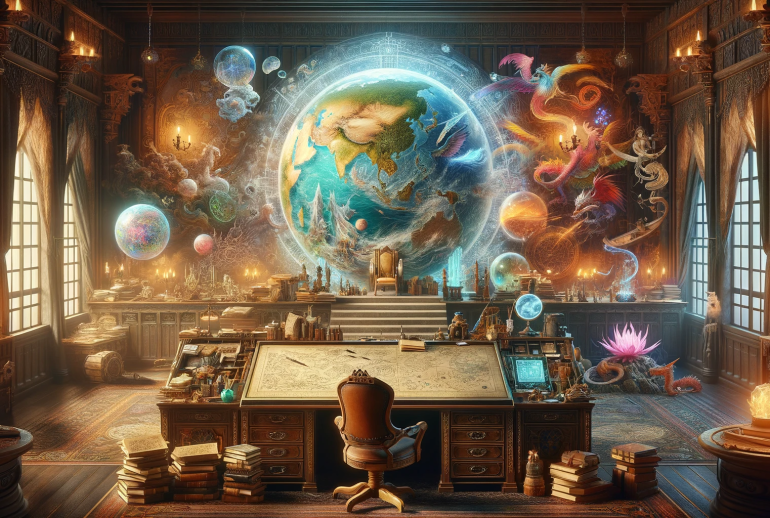World-building is a singularly exhilarating endeavor for authors, a journey of conjuring realms where stories unfurl. In the realm of collaborative fiction, it takes on a unique dimension as authors come together to craft shared universes. This intricate dance of creativity demands cohesion, coordination, and boundless imagination. In this exploration, we delve into the art of collaborative world-building, uncovering techniques to create shared universes that captivate and engage readers.
The Marvelous Tapestry of Collaborative Worlds
Establishing a Solid Foundation
- Defining the Universe: Begin with a clear understanding of the shared universe’s scope, rules, and thematic elements. Establish a cohesive foundation that all authors can build upon.
- World Bible: Create a comprehensive world-building bible that catalogs essential details, including geography, history, cultures, and supernatural elements. This bible becomes the guiding light for all collaborators.
Thematic Consistency
- Thematic Discussion: Engage in discussions to determine the overarching themes and tone of the shared universe. Whether it’s epic fantasy or dystopian sci-fi, a shared vision is crucial.
- Character Archetypes: Define character archetypes that fit within the established theme. Ensure that characters contribute to the overarching narrative without undermining each other’s stories.
Case Study: The Star Wars Expanded Universe
The Star Wars Expanded Universe (now known as “Legends”) is a prime example of collaborative world-building. Multiple authors contributed to this expansive universe, enriching it with new characters, planets, and stories while adhering to the core Star Wars themes and rules.
Coordination and Communication
Story Arc Alignment
- Master Story Arc: Craft a master story arc that spans the shared universe. This overarching narrative provides a common thread for all stories and ensures cohesion.
- Plot Coordination: Regularly communicate with fellow authors to align individual storylines with the master arc. Collaborate on pivotal events that impact the entire universe.
Character Interactions
- Character Crossovers: Embrace opportunities for character crossovers and interactions. These moments can be thrilling for readers and deepen the sense of a shared world.
- Character Sheets: Maintain a shared database of character details, ensuring consistency in personalities, motivations, and development.
Reader Engagement and Community Building
Shared Universe Guides
- Reader’s Guide: Create a reader’s guide that introduces newcomers to the shared universe. This guide can provide essential background information and offer reading recommendations.
Author Collaboration
- Collaborative Projects: Explore collaborative projects beyond writing, such as artwork, audio dramas, or interactive websites. These endeavors enhance reader engagement and expand the shared universe’s reach.
Challenges and Conflict Resolution
Creative Differences
- Open Dialogue: Foster an environment where authors can openly discuss creative differences and find solutions that align with the shared vision.
- Moderation: In case of significant disagreements, consider appointing a moderator or arbitrator to help resolve conflicts.
Canon vs. Flexibility
- Flexible Canon: Determine the degree of canon flexibility within the shared universe. Decide which elements are sacrosanct and which can be adapted by individual authors.
Conclusion
Collaborative world-building is a symphony of creativity, a harmonious blend of distinct voices coming together to craft expansive, immersive universes. When authors embark on this journey with a shared vision, a solid foundation, and effective coordination, the resulting shared universe becomes a tapestry of storytelling brilliance. Readers are drawn into a multifaceted narrative that spans genres, characters, and adventures, creating a reading experience that is truly extraordinary. In the realm of collaborative world-building, the boundaries of imagination are boundless, and the possibilities are as limitless as the universe itself.



